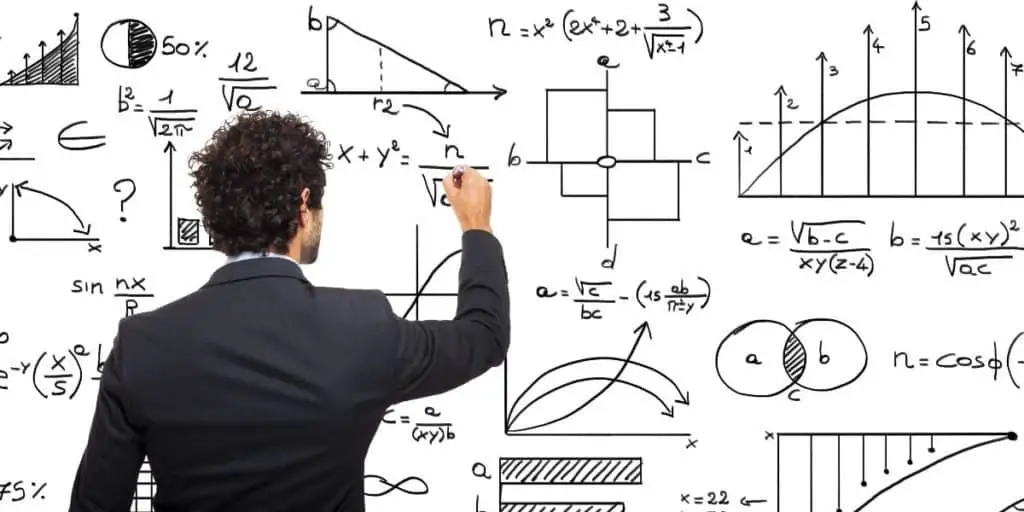Data engineers and data scientists are closely related professions, often confused with one another. The fact is that though they are similar in some aspects, they are quite different in others. But what if you want to change your career path? Can you go from data engineering to data science?
Data engineers can become data scientists. They already have more than enough technical skills for data science, but they also need to learn a lot of statistical modeling and mathematics. Visualization techniques and machine learning concepts are also essential skills for data scientists.
In this article, we will discuss everything you need to know about data engineering and data science. We will look at the similarities and differences between the two posts and how data engineers can become data scientists.
Important Sidenote: We interviewed numerous data science professionals (data scientists, hiring managers, recruiters – you name it) and identified 6 proven steps to follow for becoming a data scientist. Read my article: ‘6 Proven Steps To Becoming a Data Scientist [Complete Guide] for in-depth findings and recommendations! – This is perhaps the most comprehensive article on the subject you will find on the internet!
Table of Contents
The Difference Between Data Engineers and Data Scientists
Before discussing whether data engineers can become data scientists, it is essential to learn what these professions are. This will help us understand in what ways the two positions are similar and different.

Data engineering is concerned with making data more useful and accessible. Data engineers are supposed to optimize data and make it suitable for data scientists and business intelligence analysts to work on it. Therefore, data engineers build data pipelines that extract information from various sources, clean it, and then store it in a format that is useful for the end-users (usually data scientists).
During the process, data engineers use programming languages like Python and Scala, along with their respective packages. They also use SQL for database management, Apache Spark and Hadoop for data processing, and other ETL tools and technologies. Data engineering is a highly technical field, and strong coding skills are indispensable for this field.
On the other hand, data science is not entirely about coding and building software programs. Data science involves analyzing data using mathematical or statistical methods and algorithms to extract insights from it. The goal of data scientists is to identify trends and patterns in the data and build machine learning models that utilize those patterns to solve business problems.
For this task, data scientists regularly probabilistic techniques and other statistical concepts to explore and understand the data. They also use calculus, linear algebra, programming languages, and their packages, database management systems, machine learning, and database visualization techniques. Data science is about extracting knowledge from data to answer a particular question and solve a specific business problem.
It should be noted that these descriptions of data science and data engineering are general. The exact responsibilities of these positions vary greatly from company to company. It is possible for some organizations to have very similar job descriptions for data engineers and data scientists.
However, usually, the difference between data engineers and data scientists is that the former focuses on the engineering part, while the latter’s emphasis is on the scientific domain.
Yes, Data Engineers Can Become Data Scientists!
So now you know that data engineers and data scientists are quite different job roles. However, this does not mean professionals can’t switch between these careers.
Data engineers can indeed become data scientists. They already have the technical skills as they are proficient in Python, SQL, and programs like Apache Spark and Hadoop.
However, data engineers will need to get in-depth knowledge of the skills required for data science. This is because data engineering does not require you to master many skills that are critical when it comes to data science.
Learning data science is not a child’s play. But data engineers already have the advantage of strong coding skills. So with dedication and persistence, skilled data engineers can become competent data scientists with ease.
How to Transition From Data Engineering to Data Science?
Data engineers can become data scientists if they want. But what are the things they need to learn to switch their career and land a job as a data scientist? Well, the most important skills for data scientists are programming, machine learning, mathematics, and statistics. Data engineers are usually familiar with these subjects, more in-depth knowledge is required to analyze data and create machine learning models as a data scientist.
Let’s look at these skills in a bit more detail and some resources to help you get started:
Python and SQL
Programming and database management are essential parts of both data science and data engineering. Python is the most widely used language for all things data, though some alternatives are R, Scala, and Java. When it comes to database management, SQL is the standard language.
The good news is that as a data engineer, you are already proficient in both these languages. In fact, you know more than is required to become a data scientist. This means you will have a better understanding of how the data gets created than the average data scientist.
Apart from Python and SQL, data scientists also use Apache Spark, Hadoop, and other such platforms. However, data engineers are already familiar with these programs. So you do not need to learn anything extra here.
Statistics
Statistics form the core of data science. Data scientists need to have a solid understanding of statistical concepts like hypothesis testing, statistical significance, probability distributions, regression, etc. It is a crucial skill to possess in data-driven companies, where stakeholders rely on your help to make important business decisions.
Data engineers, at best, only have a basic understanding of statistics. So you will have to spend a lot of time learning statistics from scratch.
You can start by picking up Think Stats by Allen B. Downey. Then, follow it up with Think Bayes from the same author. It will teach you the essentials of Bayesian thinking, which is necessary for data science. Of course, only two books won’t be sufficient, but these guides will give you a solid head start.
Mathematics
Mathematical concepts like linear algebra are just as important as statistics. They help data scientists understand how machine learning algorithms work on a stream of data to provide insights. Calculus also keeps popping up in various places in machine learning and data science.
As a data engineer, you will need to dive deep into mathematics as it is a vital skill for data scientists. Coursera has an excellent specialization in Mathematics for Data Science. It contains courses on discrete mathematics, calculus, linear algebra, and probability theory. If you are looking for alternatives, here is a list of the best sources by Towards Data Science.

Machine Learning
Machine learning is another vital part of data science. Data scientists often build machine learning models that solve specific business problems. So they need in-depth knowledge of machine learning algorithms and how they are made.
Since data engineers do not use machine learning (apart from some basics), you will be learning it from scratch. There is a classic course on machine learning by Andrew Ng on Coursera. It gives you a revision of important concepts of linear algebra before diving deep into machine learning.
Author’s Recommendations: Top Data Science Resources To Consider
Before concluding this article, I wanted to share few top data science resources that I have personally vetted for you. I am confident that you can greatly benefit in your data science journey by considering one or more of these resources.
- DataCamp: If you are a beginner focused towards building the foundational skills in data science, there is no better platform than DataCamp. Under one membership umbrella, DataCamp gives you access to 335+ data science courses. There is absolutely no other platform that comes anywhere close to this. Hence, if building foundational data science skills is your goal: Click Here to Sign Up For DataCamp Today!
- IBM Data Science Professional Certificate: If you are looking for a data science credential that has strong industry recognition but does not involve too heavy of an effort: Click Here To Enroll Into The IBM Data Science Professional Certificate Program Today! (To learn more: Check out my full review of this certificate program here)
- MITx MicroMasters Program in Data Science: If you are at a more advanced stage in your data science journey and looking to take your skills to the next level, there is no Non-Degree program better than MIT MicroMasters. Click Here To Enroll Into The MIT MicroMasters Program Today! (To learn more: Check out my full review of the MIT MicroMasters program here)
- Roadmap To Becoming a Data Scientist: If you have decided to become a data science professional but not fully sure how to get started: read my article – 6 Proven Ways To Becoming a Data Scientist. In this article, I share my findings from interviewing 100+ data science professionals at top companies (including – Google, Meta, Amazon, etc.) and give you a full roadmap to becoming a data scientist.
Conclusion
Both data engineering and data science are trending jobs, but their job roles and responsibilities are quite different. Data engineers are mainly concerned only with making data suitable for analysis. In contrast, data scientists analyze the data and build machine learning models.
Data engineers are skilled in programming languages like Python, SQL, Scala, and programs like Apache Spark, Hive, Hadoop, etc. To become data scientists, they only need to learn machine learning algorithms, mathematics, and statistics. Although these topics are not easy, it is possible (and relatively easy for data engineers) to study them and land jobs as data scientists.
BEFORE YOU GO: Don’t forget to check out my latest article – 6 Proven Steps To Becoming a Data Scientist [Complete Guide]. We interviewed numerous data science professionals (data scientists, hiring managers, recruiters – you name it) and created this comprehensive guide to help you land that perfect data science job.
Affiliate Disclosure: We participate in several affiliate programs and may be compensated if you make a purchase using our referral link, at no additional cost to you. You can, however, trust the integrity of our recommendation. Affiliate programs exist even for products that we are not recommending. We only choose to recommend you the products that we actually believe in.
